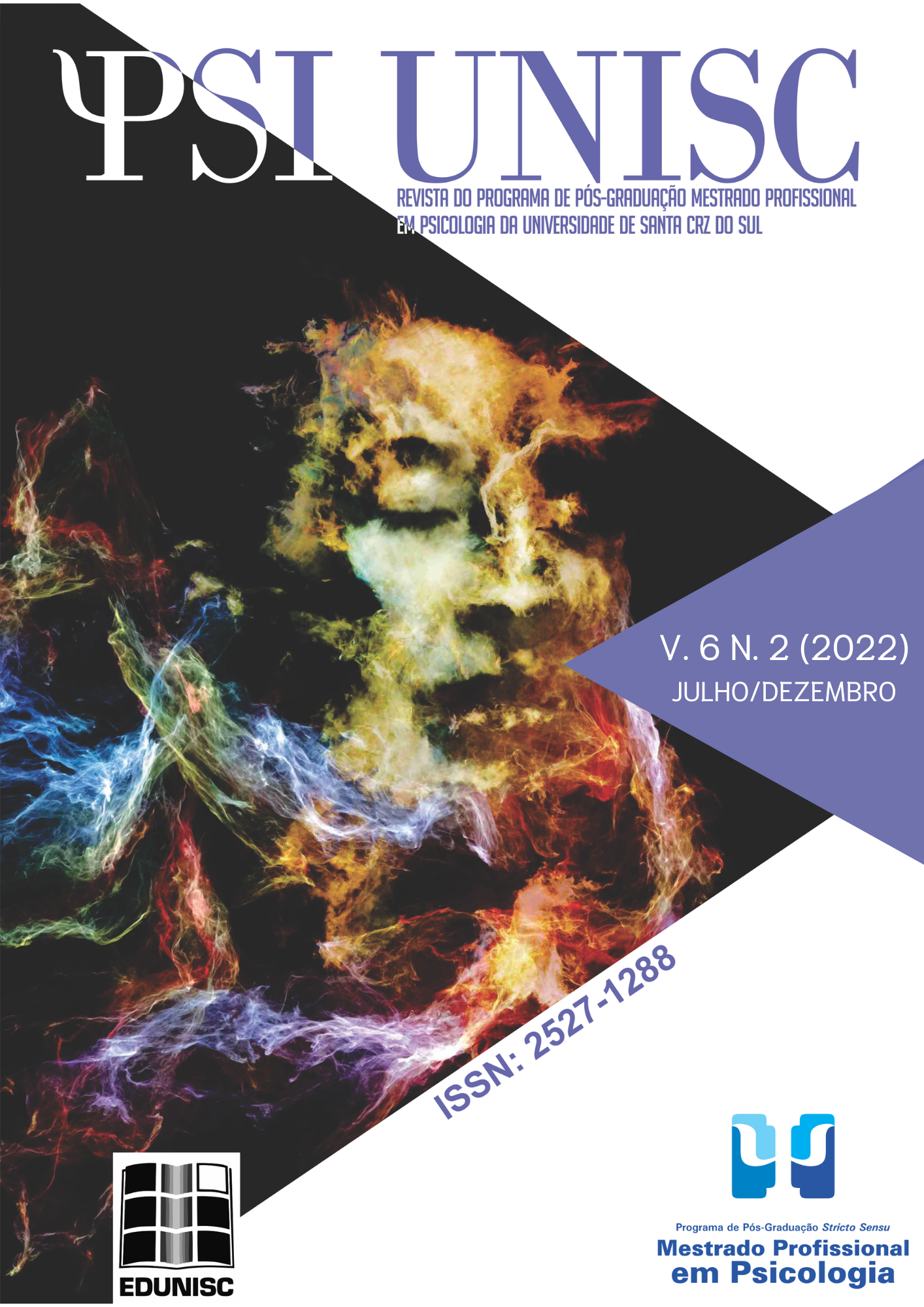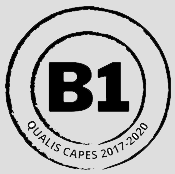The various senses of absence: reports of basic internship experience in educational context
DOI:
https://doi.org/10.17058/psiunisc.v6i2.16750Keywords:
Internship, Experience Report, Childhood, Absence, PsychologyAbstract
This essay has a systematization of possible reflective syntheses on the performance of psychology in a school context. This research happened in an educational unit in the city of Cuiabá, when the students were in the third semester of the Psychology graduation at Federal University of Mato Grosso. The insertion of interns in the school environment, to carry out qualitative research, with children aged four to five years, was designed and guided by participant observation (Martins, 1996), considering an atypical adult posture (Corsaro, 2005). The period of participant observation allowed the students to listen to the children and identify some themes that were repeated - such as death, forgetfulness and defeat - which were grouped and named, didactically, as “absence”. As a working method, the construction of socio-affective workshops (Andrade, 2019) was proposed in the intervention project, which served as a methodological tool for mediation, and potentialization, of new hypotheses arising from the children, about the context that surrounded them. The objective, then, with the experience report, is to describe the insertion of students in the field and bring a discussion about the contributions of this practice to the psychologist's graduation process.
Downloads
References
Andrade, D. B. S. F. (2019). Rede de Apoio à Infância: interfaces com a Psicologia e Pedagogia. Projeto de Extensão, Sistema de Extensão (SIEx). Coordenação de Extensão (CODEX). Universidade Federal de Mato Grosso. Cuiabá.
Andrade, M. A. A. D., & Alonso, M. A. (1995). A identidade como representação social. Revista Política & Trabalho, João Pessoa, Universidade Federal da Paraíba, (11), 63-73.
Santos, G. L., & Chaves, A. M. (2012). Autoridade dos professores e direitos das crianças: contradição e transformação. Revista de Educação Pública, 21(45), 31-43.
Coutinho, Luciana Gageiro; Carneiro, Cristiana; Salgueiro, Larissa Magalhães. Vozes de crianças e adolescentes: o que dizem da escola? Psicologia Escolar e Educacional, v. 22, p. 185-193, 2018.
Corsaro, W. A. (2005). Entrada no campo, aceitação e natureza da participação nos estudos etnográficos com crianças pequenas. Educação e sociedade, 26(91), 443-464.
Corsaro, W. A.; Eder, Donna. Children's peer cultures. Annual review of sociology, v. 16, n. 1, p. 197-220, 1990.
Glória Seber, M., & de Freitas Luis, V. L. F. (1997). Psicologia do pré-escolar: uma visão construtivista. Moderna.
Delgado, A. C. C., & Müller, F. (2005). Em busca de metodologias investigativas com as crianças e suas culturas. Cadernos de pesquisa, 35(125), 161-179.
Ferreira, M. (2010). “-Ela é nossa prisioneira!” – Questões teóricas, epistemológicas e ético-metodológicas a propósito dos processos de obtenção da permissão das crianças pequenas numa pesquisa etnográfica. Reflexão e ação, 18(2), 151-182.
Günther, H. (2006). Pesquisa qualitativa versus pesquisa quantitativa: esta é a questão?. Psicologia: teoria e pesquisa, 22(2), 201-209.
Martins, J. B. (1996). Observação participante: uma abordagem metodológica para a psicologia escolar. Semina: Ciências, Sociedade e Humanidade, 17(3), 266-273.
Mello, Magda Medianeira de; Santos, Janaina Dorigo dos. Infância, loucura e alteridade. Fractal: Revista de Psicologia, v. 30, p. 314-321, 2018.
Prestes, Z. (2016). A brincadeira de faz de conta e a infância. Revista Trama Interdisciplinar, 7(2).
Sarmento, M. J. (2007). Visibilidade social e estudo da infância. In: Vasconcellos, V, M, R.; Sarmento, M. J. (Org.) Infância (In)Visível. Araraquara, SP/Brasil: Junqueira & Marin.
Santos, R. C., & da Silva Freire Andrade, D. B. (2020). Narrativas infantis sobre a queixa escolar: metodologia de investigação com crianças. Cadernos Brasileiros De Saúde Mental/Brazilian Journal of Mental Health, 12(31), 328-352. https://doi.org/10.5007/cbsm.v12i31.70049.
Sayão, D. T. (2002). Crianças: substantivo plural. Zero-a-Seis, 4(6), 24-32.
da Silva Júnior, L. C. C., Alves, T. T., Coutinho, L. G., & Carneiro, C. (2021). Infância e ideais na palavra de educadores:: entre a criança-sujeito e a criança-objeto. Fractal: Revista De Psicologia, 33(2), 126-136. https://doi.org/10.22409/1984-0292/v33i2/5977 (Original work published 31º de agosto de 2021).
Vygotsky, L. S. (2010). Quarta aula: a questão do mei o na pedologia. Psicologia USP, 21(4), 681-701.
Wachelke, J. F. R., & Camargo, B. V. (2007). Representações Individuais e Comportamento. R. interam. Psicol, 41, 2.
Downloads
Published
How to Cite
Issue
Section
License
The submission of originals to this journal implies the transfer, by the authors, of the printed and digital publication rights. The copyrights for the published articles are those of the author, with periodical rights on the first publication. Authors may only use the same results in other publications clearly indicating this journal as the medium of the original publication. Because we are an open access journal, we allow free use of articles in educational and scientific applications provided the source is cited under the Creative Commons CC-BY license.




